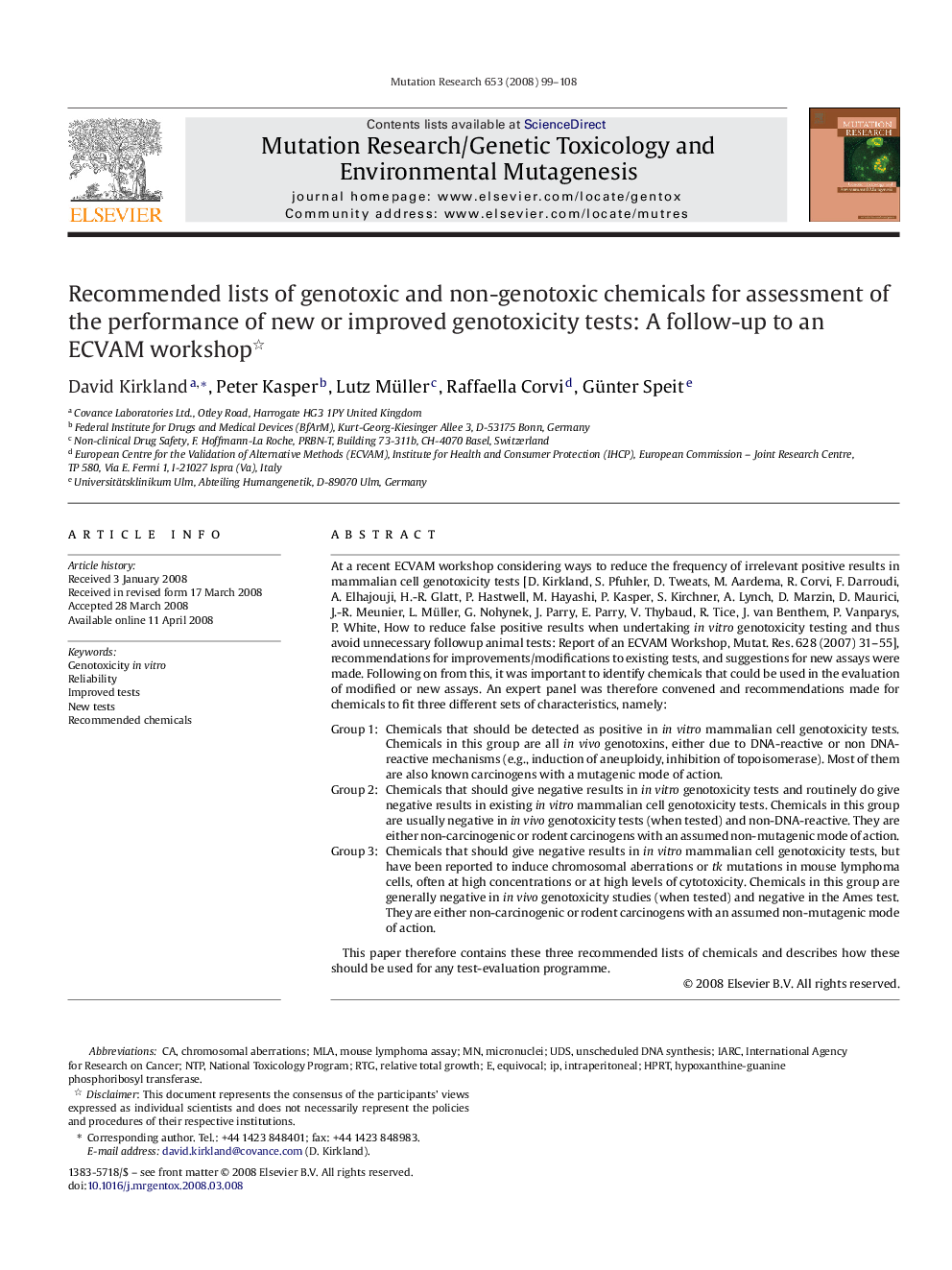| کد مقاله | کد نشریه | سال انتشار | مقاله انگلیسی | نسخه تمام متن |
|---|---|---|---|---|
| 2148870 | 1548634 | 2008 | 10 صفحه PDF | دانلود رایگان |

At a recent ECVAM workshop considering ways to reduce the frequency of irrelevant positive results in mammalian cell genotoxicity tests [D. Kirkland, S. Pfuhler, D. Tweats, M. Aardema, R. Corvi, F. Darroudi, A. Elhajouji, H.-R. Glatt, P. Hastwell, M. Hayashi, P. Kasper, S. Kirchner, A. Lynch, D. Marzin, D. Maurici, J.-R. Meunier, L. Müller, G. Nohynek, J. Parry, E. Parry, V. Thybaud, R. Tice, J. van Benthem, P. Vanparys, P. White, How to reduce false positive results when undertaking in vitro genotoxicity testing and thus avoid unnecessary followup animal tests: Report of an ECVAM Workshop, Mutat. Res. 628 (2007) 31–55], recommendations for improvements/modifications to existing tests, and suggestions for new assays were made. Following on from this, it was important to identify chemicals that could be used in the evaluation of modified or new assays. An expert panel was therefore convened and recommendations made for chemicals to fit three different sets of characteristics, namely:Group 1:Chemicals that should be detected as positive in in vitro mammalian cell genotoxicity tests. Chemicals in this group are all in vivo genotoxins, either due to DNA-reactive or non DNA-reactive mechanisms (e.g., induction of aneuploidy, inhibition of topoisomerase). Most of them are also known carcinogens with a mutagenic mode of action.Group 2:Chemicals that should give negative results in in vitro genotoxicity tests and routinely do give negative results in existing in vitro mammalian cell genotoxicity tests. Chemicals in this group are usually negative in in vivo genotoxicity tests (when tested) and non-DNA-reactive. They are either non-carcinogenic or rodent carcinogens with an assumed non-mutagenic mode of action.Group 3:Chemicals that should give negative results in in vitro mammalian cell genotoxicity tests, but have been reported to induce chromosomal aberrations or tk mutations in mouse lymphoma cells, often at high concentrations or at high levels of cytotoxicity. Chemicals in this group are generally negative in in vivo genotoxicity studies (when tested) and negative in the Ames test. They are either non-carcinogenic or rodent carcinogens with an assumed non-mutagenic mode of action.This paper therefore contains these three recommended lists of chemicals and describes how these should be used for any test-evaluation programme.
Journal: Mutation Research/Genetic Toxicology and Environmental Mutagenesis - Volume 653, Issues 1–2, 31 May 2008, Pages 99–108